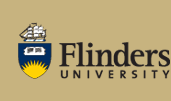
The Bachelor of Engineering (Mechanical) requires four years of full-time study (or the equivalent part-time).
The course is offered by the School of Computer Science, Engineering and Mathematics, within the Faculty of Science and Engineering.
A double degree program Bachelor of Engineering (Mechanical)/Master of Engineering (Biomedical) requiring five years of full-time study (or the equivalent part-time) is also available.
The minimum requirements for consideration for entry to all undergraduate courses are specified in detail in the University Entry Requirements.
Successful completion of either SACE Stage 2 (Year 12) Mathematical Methods or Mathematical Studies or the equivalent International Baccalaureate subject is required. Knowledge of SACE Stage 2 (Year 12) Physics is assumed.
The course has been designed to provide graduates with:
The course provides the foundations that will underpin ongoing professional development, preparing graduates for further study or for a career in an engineering related field or in other areas where the range of skills and knowledge acquired is needed or desirable.
On completion of the award, students will be able to:
On completion of the Bachelor of Engineering (Mechanical), students will be eligible for professional membership of Engineers Australia.
To qualify for the Bachelor of Engineering (Mechanical) a student must complete 144 units with a grade of P or NGP or better in each topic, according to the program of study below.
Students achieving a credit level average or better at the end of third year will be allowed to enrol in the honours degree program in Engineering in their final year. Other students will be able to complete the ordinary degree program. Students admitted to the honours degree program and maintaining a credit average or better will be awarded the degree of Bachelor of Engineering with Honours. Students who complete the honours degree program but who fail to maintain a credit average and students who complete the ordinary degree program will be awarded the ordinary degree of Bachelor of Engineering.
Students who have successfully completed the first three years of the program (108 units) (plus ENGR3403 Engineering Work Experience (0 units) if the practicum has not been completed) may exit with a Bachelor of Engineering Science.
36 units comprising:
COMP1102 Computer Programming 1 (4.5 units)
ENGR1201 Digital Electronics 1 (4.5 units)
ENGR1401 Professional Skills for Engineers (4.5 units)
ENGR1711 Engineering Design (4.5 units)
ENGR1722 Engineering Materials (4.5 units)
ENGR1732 Mechanical and Electrical Fundamentals (4.5 units)
MATH1121 Mathematics 1A (4.5 units)
MATH1122 Mathematics 1B (4.5 units)
36 units comprising:
ENGR2701 Engineering Programming (4.5 units)
ENGR2703 Mechanical Practice Certificate^ (0 units)
ENGR2711 Engineering Mathematics (4.5 units)
ENGR2722 Signals and Systems (4.5 units)
ENGR2732 Biomechanics (4.5 units)
ENGR2741 Mechanics and Structures (4.5 units)
ENGR2771 Dynamics and Mechanical Design (4.5 units)
ENGR2772 Sensors and Actuators (4.5 units)
ENGR3712 Thermodynamics and Energy Systems (4.5 units)
^ ENGR2703 Mechanical Practice Certificate is taught intensively commencing two weeks before the normal start of semester 1. Students must ensure that they are available for this early start.
36 units comprising:
ENGR2751 Fluid Mechanics (4.5 units)
ENGR2752 Mechanics of Machines (4.5 units)
ENGR3704 Project Management for Engineering and Science#&hash (4.5 units)
ENGR3711 Control Systems (4.5 units)
ENGR3751 Solid Mechanics (4.5 units)
Plus one of:
ENGR3700 Engineering Practicum* (13.5 units)
ENGR3710 International Engineering Practicum* ## (13.5 units)
*With the permission of the Director of Studies (Engineering), students may instead undertake ENGR3403 Engineering Work Experience (0 units) that may be done any time after the student has completed 63 units, plus 13.5 units of CSEM upper-level topics. CSEM upper-level topics must be selected from COMP, ENGR, MATH and STAT topics at 2000-level and above.
##ENGR3710 International Engineering Practicum should be selected by those students intending to undertake their Practicum outside of Australia. Enrolment is subject to approval by the School and will consider the quality and appropriateness of the placement.
#&hashENGR3704 Project Management for Engineering and Science is taught intensively commencing before the normal start of semester. Students must ensure that they are available for this early start.
22.5 units comprising:
ENGR4xxx Advanced Mechanical Design (4.5 units)
ENGR4700 Honours Thesis (18 units) OR
ENGR4700A Honours Thesis (4.5/18 units) AND
ENGR4700B Honours Thesis (4.5/18 units) AND
ENGR4700C Honours Thesis (4.5/18 units) AND
ENGR4700D Honours Thesis (4.5/18 units)
Plus 9 units of CSEM option topics**
Plus a 4.5 unit topic from across the University where entry requirements are met.
**CSEM option topics must be selected from Table A, at least half of which will be chosen from those labelled as mechanical (Group H). With permission of the Director of Studies, one CSEM option topic may be chosen from CSEM upper-level topics. CSEM upper-level topics must be selected from COMP, ENGR, MATH and STAT topics at 2000-level and above.
13.5 units comprising:
ENGR4xxx Advanced Mechanical Design (4.5 units)
ENGR4710 Engineering Project (9 units) OR
ENGR4710A Engineering Project (4.5/9 units) AND
ENGR4710B Engineering Project (4.5/9 units)
Plus 18 units of CSEM option topics**
Plus a 4.5 unit topic from across the University where entry requirements are met.
**CSEM option topics must be selected from Table A, at least half of which will be chosen from those labelled as mechanical (Group H). With permission of the Director of Studies, one CSEM option topic may be chosen from CSEM upper-level topics. CSEM upper-level topics must be selected from COMP, ENGR, MATH and STAT topics at 2000-level and above.
The Bachelor of Engineering (Mechanical) may also be studied in a combined degrees program with a:
CRICOS Provider: 00114A | Updated: 03 May, 2011